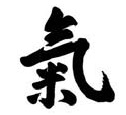About
Why FilosKi?
FilsosKi is convinced that physiotherapeutic methods that integrate the process of giving sense to a motion in the therapeutic approach, contribute to a good result in those cases where people face a chronic neurological disease.
“Good” in this case means: Keeping an optimal ability to move (*) in relation with a from the patients point of view meaningful context, with a sense of keeping “a good quality of life”, whatever the quantity(ies) of this life may be.
(*) “Move” in this case means: A well coordinated movement where both the physical as the psychological aspect of the human body are involved. Understood in this way, one could say that it is a process of integrating “mind (*) and body”.
(*) “Mind” is considered to be a spiritual reality, with cannot be understood through objective methods of research but only personal reflection, or meditation. Purpose of this meditation is to see clear what is reality.
FilosKi Foundation
 The name FilosKi is built on two semantic structures:
The name FilosKi is built on two semantic structures:
 Filos (ancient-Greek: friend). This is a reference to the European tradition where FilosKi is part of, and the value of friendship as a truly human relationship based on respect, joy and freedom.
Filos (ancient-Greek: friend). This is a reference to the European tradition where FilosKi is part of, and the value of friendship as a truly human relationship based on respect, joy and freedom.- Ki (Japanese) for “something unclear”. Ki is a reference to universal traditional patterns where in mind and body are thought to be integrated like to partners in a dance. From this integration “Ki” as an indefinable reality can vitalise the body, both in its physical as its psychological aspect.
In FilosKi those people gather who call themselves friends in realising the mission of FilosKi.
Methods
The methods of Bart Derkx are inspired by three traditions:
- Kenkodo-Aikido
- Systemical Therapy
- Lectio divina
Aikido’s origine is Japan. It is a martial art in which Bart Derkx has been mastered (Second Dan- Kenkodo Aikido) On the background of his treatment Aikido is helpful for himself and his patients. Derkx: "Aikido supports me in staying independent as a practitioner by keeping in touch with my own values. In the treatments Aikido gives me ideas to develop concrete exercises to improve the coordination of mind and body in my patients. This helps them finding develop ways to optimal movement. In the group sessions with Parkinson patients Aikido is the most explicit. From the background of Aikido I tell my patients not to struggle against their inconvincible disease, but to line up with their disease (tot develop consciousness about the influence of the disease on their live) and to strengthen themselves."
Systemical therapy influences relationships, more than subjects. Relationships influence life, both mind and body. The disturbances in private and business relations often echoes in a disturbance of the body, vice versa. When necessary, this aspect Bart Derkx pays attention to in his treatments. Derkx: "The body tells the structure of a story, how life affects us. I can feel tensions in the body of my patients. Clearly the patient has to tell the concrete stories. If necessary we seek together the ability for the patients to handle the facts they have to face in relation with their disease. This helps to develop an understanding their disease from inside."
Lectio divina literally means divine reading. It is part of Christian monastic tradition, a way of listening to the voice of God, in stories concerning daily life experiences. This spiritual tradition is important for Bart Derkx’ personal attitude. During the treatments this tradition is visible in the careful and silent fine tuning with his patients. There are always three basis positions in the therapy: The patient, Bart and God. God not seen as a subject of a religious system, but as “Ki”, an indefinable reality, needed to keep our mind open, focussed on what lies beyond the horizon.